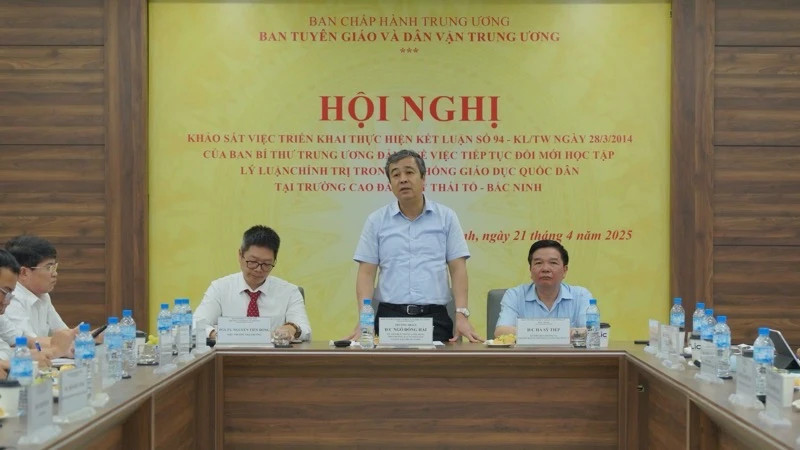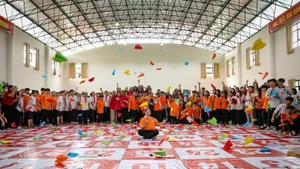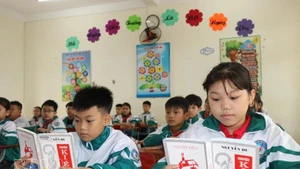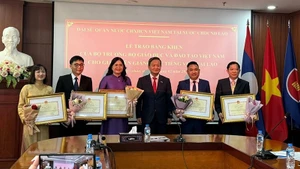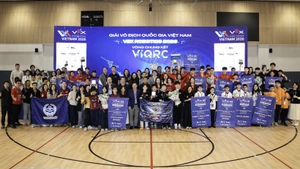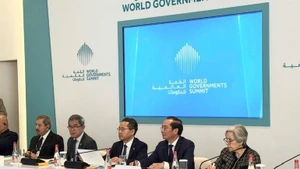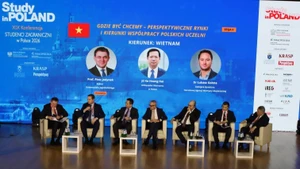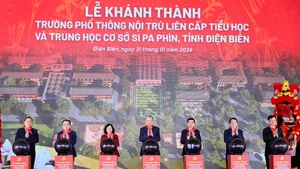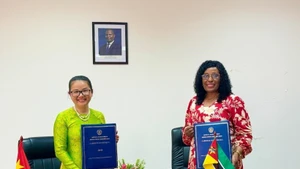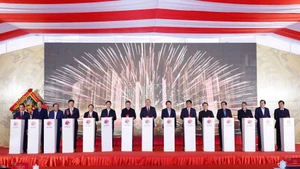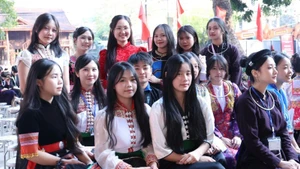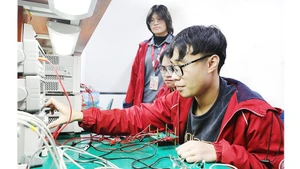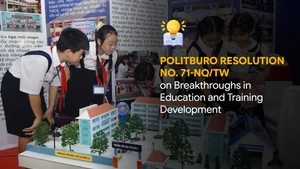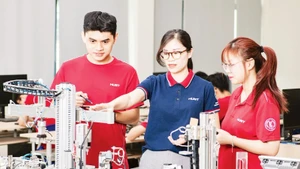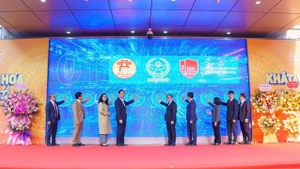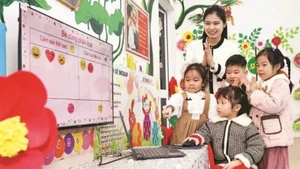Reporting to the working delegation led by Ngo Dong Hai, PCC member, Deputy Head of the PCC Commission for Communication, Education and Mass Mobilisation, Nguyen Van Hang, Deputy Secretary of Ly Thai To College’s Party Committee, Vice Principal of Ly Thai To College, said that since its establishment in August 2019, the college has taught politics to 286 graduates and 492 students. The results show that 100% of students have met the requirements, of which 70% of students with good and excellent grades.
The college has actively innovated the content and teaching methods of politics in a flexible direction, linking theory with practice. In addition to classroom hours, the college has combined many communication activities and extracurricular programs to help students vividly acquire knowledge, while accumulating good cultural and historical values of the nation.
Through the Youth Union of the college, many meaningful activities are regularly implemented, such as: screening revolutionary films on major anniversaries of the country; organising competitions to learn, study and follow Ho Chi Minh's ideology, morality and style; taking outstanding youth union members to visit historical and cultural relic sites. These are practical activities, fostering patriotism, raising political awareness, and consolidating an ideological stance for students.
However, the college also acknowledged some shortcomings and limitations in teaching political theory, such as: political theory lecturers are uneven and lack practical experience; teaching content is still heavy on theory, lacking connection and integration with professional practice, and not creating attraction and appeal for learners.
Speaking at the meeting, Ngo Dong Hai affirmed that political theory education in particular, as well as ideological work, education and human resource training in general, are always the top requirements and tasks that our Party sets for Party organisations, agencies, departments and society.
This is also the noble goal of building Vietnamese people to develop comprehensively, build a quality workforce, contributing to the successful implementation of the goal of building a sustainable society as the Party has determined and our people are striving for, he said.
The Deputy Head of the PCC Commission for Communication, Education and Mass Mobilisation hoped that lecturers and the colleges would pay more attention and have a correct and complete understanding of the requirements for political theory education in colleges.
He suggested that the curriculum of Ly Thai To College should be adjusted and updated promptly, and at the same time, closely linked with experiential activities on history and tradition education, to improve the effectiveness of ideological and theoretical education.
At the same time, he hoped that teachers would continue to pay attention to improving the quality of teaching, innovating teaching methods so that students feel love and interest in this subject.
Ngo Dong Hai also expressed his hope that in the coming time, the college will continue to make efforts to innovate, further promote the role of the subject, and improve the quality of training in general, thereby creating a foundation for strong and sustainable development.
